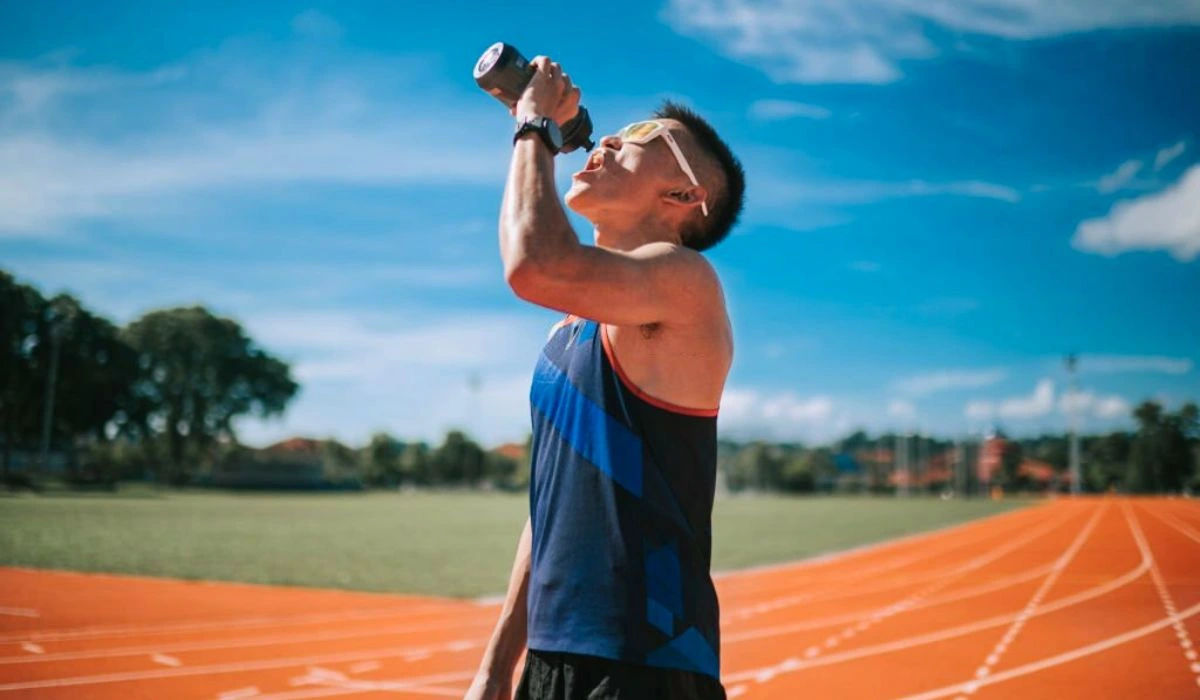To maintain proper body homeostasis for optimal mental balance in athletes, water plays a critical role in determining body function. Part of these functions is to lubricate athletes’ joints, promote proper cardiovascular function, transport essential nutrients, and regulate body temperature.
Without a persistent athletic routine and self-discipline, it is not likely for almost all the top celebrated athletes to be celebrated globally. For athletes to perform optimally, a nutritional, behavioral, and mental balance check is necessary. This cannot be magically achieved without the above-mentioned procedures.
Hydration is one of the major nutritional factors necessary to balance an athlete’s physiological state and achieve an athletic peak.
We’ll look critically and clinically at hydration strategies and how to effectively implement them for optimal athletic application.
Before we look into hydration strategies, it is best to ask this question: what is adequate hydration? What is the expected level of hydration that can be measured or termed appropriate for athletes?
To answer this, we’ll say it is best to maintain 10–12 cups of water or hydrating substances like beverages during training.
What Are Hydration Strategies?
These strategies can be defined as a proactive mechanism of adequate fluid intake rather than taking fluid only when it is necessary (like when thirsty) or any possible approach or means to prevent excessive water loss from the body through timed and conscious intake of water or hydrating substances.

It should be considered necessary for most athletes who usually undergo training exercises in groups or teams to consider the following factors before deciding on the best form of hydration strategy to adopt without generalizing the method as it relates to all:
Exercise intensity, duration of training, personal sweat level, environmental condition
Once the best method of hydration is understood and appropriately followed, athletes can maintain peak performance and optimize their fluid balance.
Also Check: Supplements For Muscle Recovery And Repair: Don’t Miss Out These Boosters
Phases Of Hydration For Athletes’ Optimized Performance
To further elucidate the importance of hydration or before adopting the needed hydration strategy, it is important to understand some phases of hydration, some of which include
Pre-hydration, intra-hydration, post-hydration, and maintenance hydration
- Pre-hydration: In an event, if you’re adequately hydrated, you will definitely have an edge over your peers. If you have a big event like a marathon or endurance walk, it is better to drink 5–8 ml/kg per body weight 2-4 hours before you exercise.
- Intra-hydration: intra-hydration is necessary during an intra-workout; do not wait until you’re thirsty during training before you take water. Once your training starts, it is better to continue taking a bit of water throughout the workout. Your performance level has started dropping once you feel the need for water. To curb this, intra-hydration is necessary.
- Post-hydration: For adequate fluid maintenance and to improve athletic performance for an athlete, there is a need for water intake 30 minutes after exercise or workout.
- Maintenance Hydration: Research has shown that losing as little as 2% of total body weight can negatively affect athletic performance. Proper fluid replenishment is the key to reducing dehydration while increasing the effectiveness of athletes.
The Importance Of Water Balance In Athletes
By staying adequately hydrated, athletes are able to display special talents while performing before, during, and after their area of specialty.
Once adequately hydrated, they are able to:
- Lubricate joints for effective activities.
- Reduce fatigue
- Build muscle and increase muscle tone.
- Reduce cardiovascular strain.
- Prevent muscle cramps as a result of dehydration.
- Think clearly
- Regulate core body temperature.
- Clear and sharp mental state
Without these, no matter how long you have trained or practiced, eating nutritious food and staying hydrated are important for athletes’ performance.
As An Athlete, Can I Drink Too Much?
The answer is yes; you can drink too much if conscious practices are not being employed.
When you drink too much, a condition known as hyponatremia can occur.
A condition where the cells in your body begin to swell and dilute the salt concentration levels, this will manifest common symptoms like feeling confused or disoriented, headache, difficulty balancing, feeling bloated, sick, or vomiting.
In some cases, it can lead to a coma, a seizure, or even death.
If you’re experiencing any of these, please seek medical care immediately.
Any athlete who wants to compete internationally must take hydration seriously in order to achieve optimal athletic performance.
Read More: Creating A Personalized Nutrition Plan For Recovery: Essential Customization